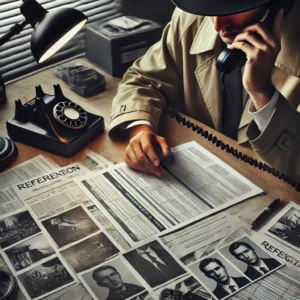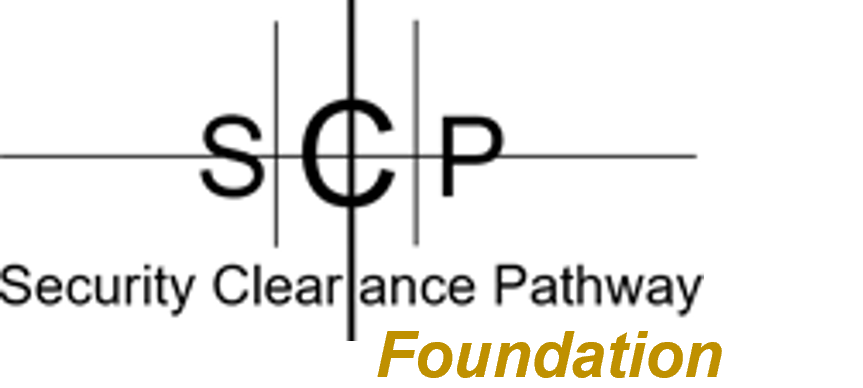Introduction: Why Background Checks Matter in Security Clearance
 Getting a security clearance isn’t just about filling out paperwork—it’s about proving your reliability, trustworthiness, and loyalty to the United States. That’s where background checks for security clearance come into play. Investigators look beyond your resume to uncover a detailed picture of your life.
Getting a security clearance isn’t just about filling out paperwork—it’s about proving your reliability, trustworthiness, and loyalty to the United States. That’s where background checks for security clearance come into play. Investigators look beyond your resume to uncover a detailed picture of your life.
Whether you’re applying for Confidential, Secret, or Top Secret clearance, understanding what investigators evaluate gives you a competitive edge and helps you avoid delays.
In this guide, we’ll break down each component of a background check and what you can do to prepare.
What Is a Background Check for Security Clearance?
A background check is a thorough review of your personal, financial, and professional history. It’s conducted by a government agency or contractor to determine your suitability for access to classified information.
Key Components of the Process:
- Personal and family history
- Employment and education verification
- Financial review
- Criminal records check
- Foreign influence and activities
- Drug use and mental health evaluation
- Interviews with references and neighbors
The Role of the SF-86 Form
What Is SF-86?
SF-86 is the foundation of your clearance investigation. It’s a detailed form where you disclose:
- Places you’ve lived
- Employment history
- Education
- Travel
- Contacts with foreign nationals
Pro Tip: Complete it honestly and thoroughly. Omissions are worse than disclosures.
Explore scholarships that support your path to clearance careers.
What Investigators Look For During a Background Check
1. Criminal History
Investigators review:
- Arrest records
- Court cases
- Convictions or dropped charges
Even minor offenses like DUIs or misdemeanors can raise flags—especially if not disclosed upfront.
2. Financial Responsibility
Money problems may indicate poor judgment or susceptibility to coercion.
- Bankruptcy
- Late payments
- Debt collection
- Unpaid taxes
Tip: Provide documentation for resolved issues or payment plans.
3. Foreign Influence or Preference
Investigators want to ensure your loyalty lies with the U.S. They examine:
- Dual citizenship
- Foreign investments
- Family members living abroad
- Foreign travel
Mitigation: Transparency and a lack of divided interests can help your case.
4. Drug Use and Alcohol History
 Recent or repeated use is a red flag. Investigators look for:
Recent or repeated use is a red flag. Investigators look for:
- Drug experimentation
- Prescription drug abuse
- Rehab or recovery history
- Alcohol-related legal issues
Staying clean and showing a pattern of responsible behavior is key.
5. Mental Health Considerations
Mental health alone isn’t disqualifying. What matters is stability and treatment.
- Diagnosis details
- Therapy or medication history
- Hospitalizations
Tip: Disclose voluntarily if it helps explain positive behavior changes.
6. Social Media and Online Presence
Yes, they check that too.
- Anti-government posts
- Extremist views
- Disinformation sharing
Clean up questionable content and lock down your privacy settings.
7. Relationships and Associations
Your close friends and partners can impact your investigation.
- Do they have criminal backgrounds?
- Are they foreign nationals?
- Could they pose a risk to national security?
You are responsible for who you associate with.
Meet our partners who help candidates succeed in clearance-required careers.
What Happens During the In-Person Interview
Not every applicant has an in-person interview, but many do—especially for Secret and Top Secret levels.
Interviewers may ask:
- Clarifying questions about SF-86 responses
- Questions about your relationships
- Explanations of financial or legal issues
Your demeanor and consistency matter as much as your answers.
Reference Checks: Neighbors, Employers, and Friends
Investigators don’t just rely on what you say—they talk to others too:
- Employers (past and present)
- Friends and roommates
- Neighbors from previous addresses
Make sure people you list as references know you well and can vouch for your reliability.
How Long Does the Background Check Take?
It depends on your clearance level and personal background:
| Clearance Level | Typical Duration |
|---|---|
| Confidential | 1–3 months |
| Secret | 2–6 months |
| Top Secret | 6–12 months |
Delays often happen due to:
- Missing or inaccurate SF-86 data
- Inaccessible references
- Financial red flags
How to Prepare for a Background Check
 Steps You Can Take:
Steps You Can Take:
- Gather all necessary documentation early
- Inform your references ahead of time
- Review your social media
- Address financial and legal issues proactively
- Be honest and consistent in your application
More tips from our blog on speeding up your clearance process
Can You Be Denied? What to Do If It Happens
Yes, but it’s not always final. You’ll receive a Statement of Reasons (SOR) explaining the decision.
You Can:
- Appeal the decision
- Submit mitigating evidence
- Reapply after correcting the issues
Key Resources to Help You Succeed
- Scholarship Opportunities
- Our Donors & Supporters
- Read More on Our Blog
- Contact Us to Start Your Journey
Final Thoughts: Be Prepared, Be Clear, Get Approved
Understanding what investigators look for during background checks for security clearance empowers you to get ahead of the process. Preparation, honesty, and responsibility go a long way.
